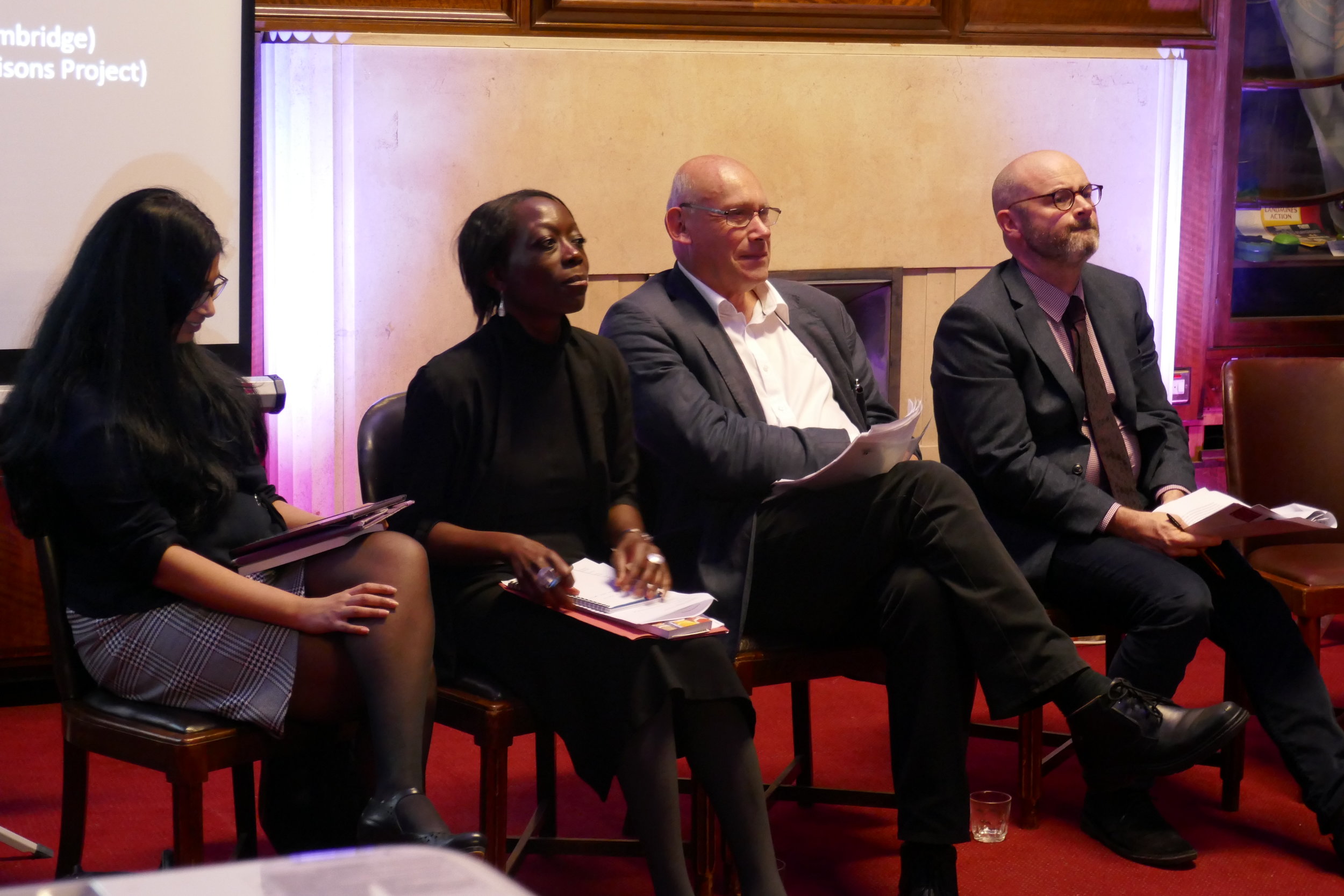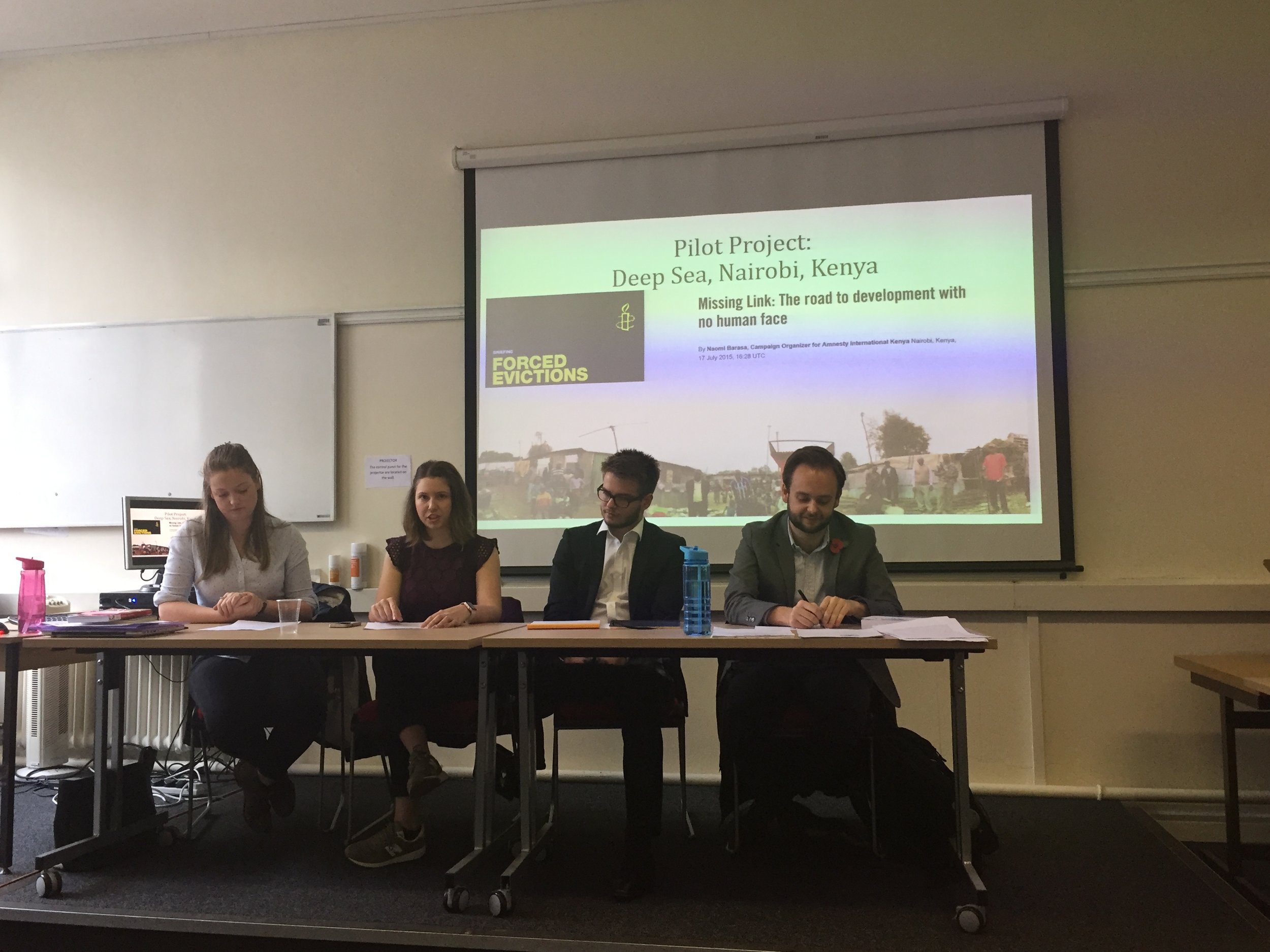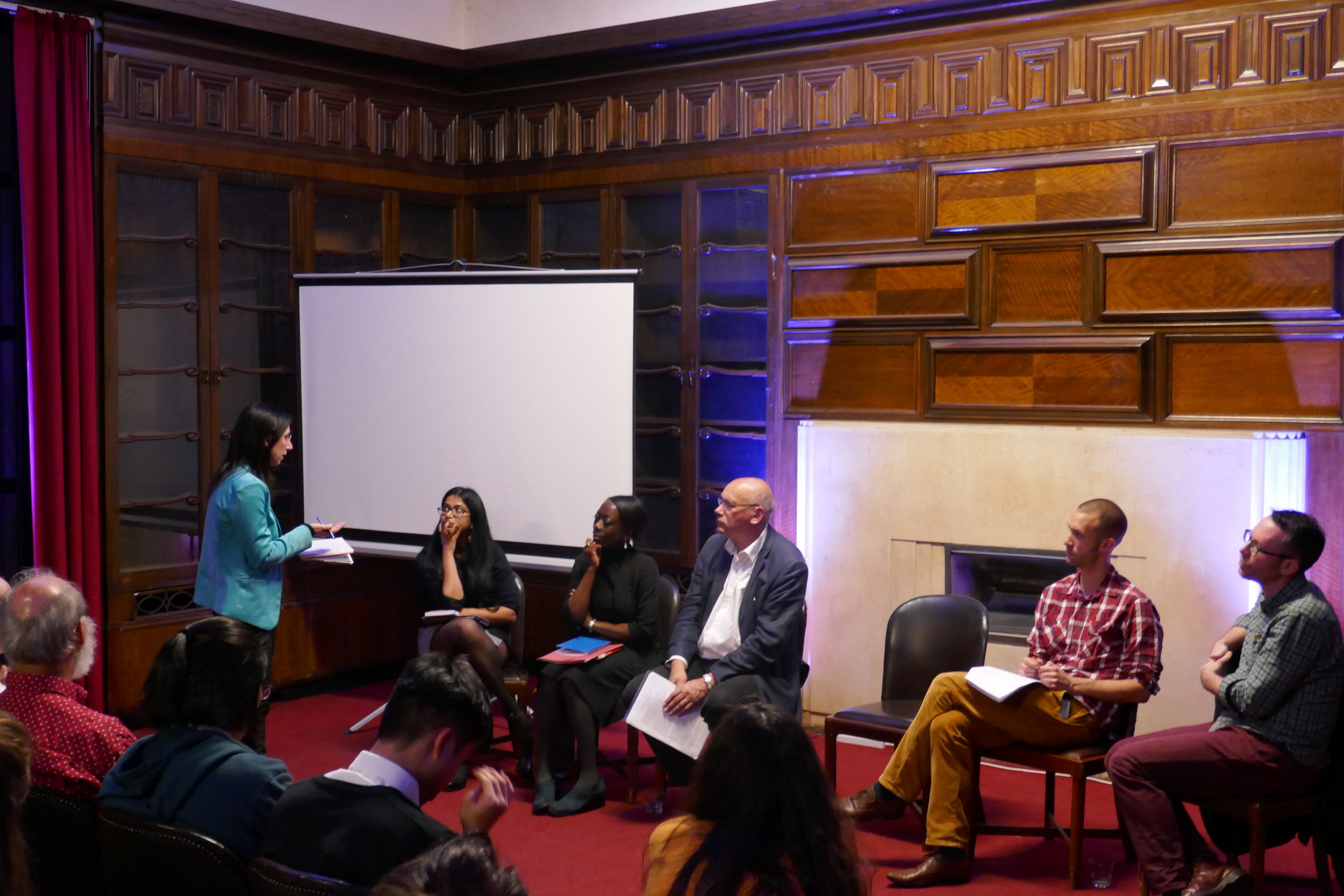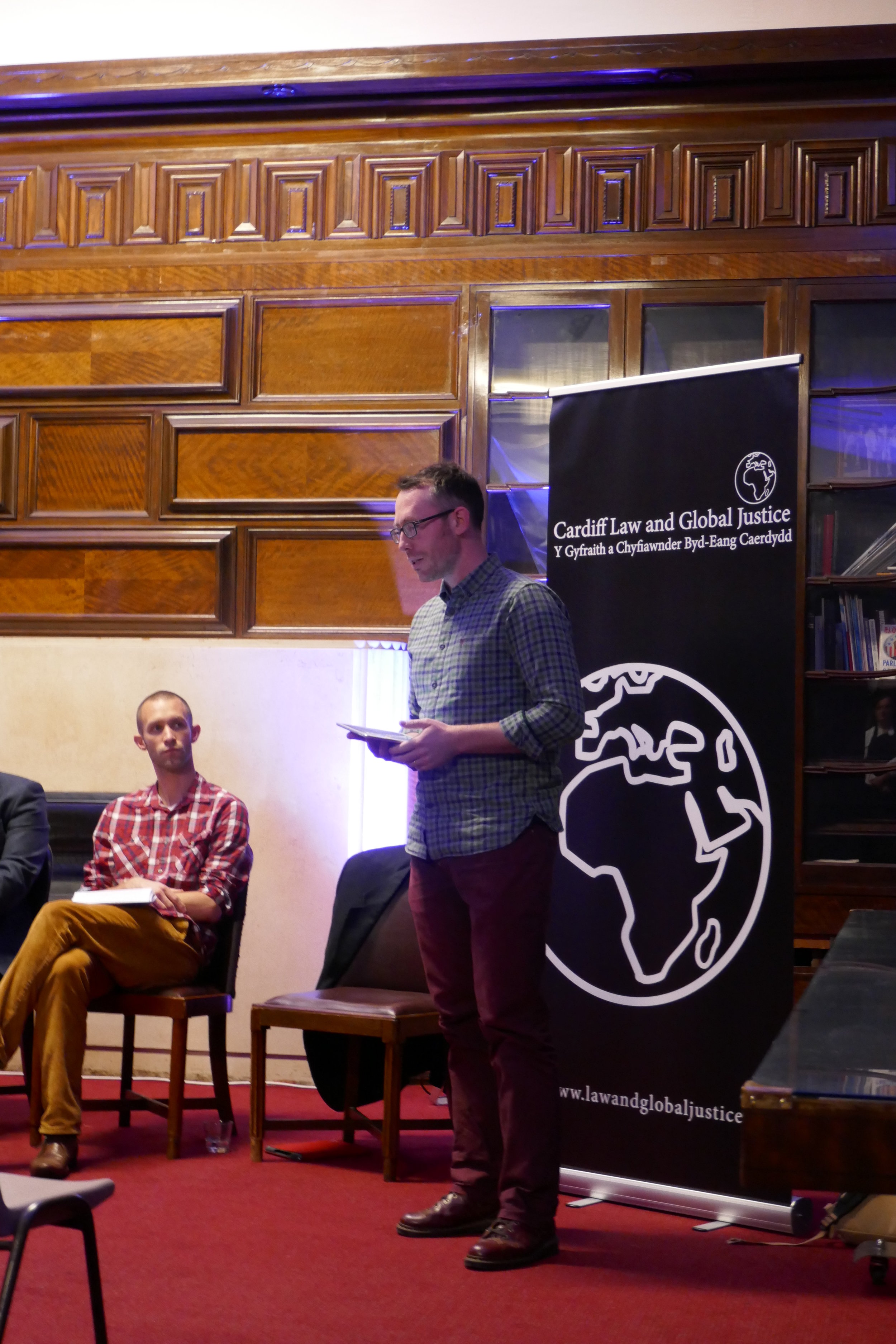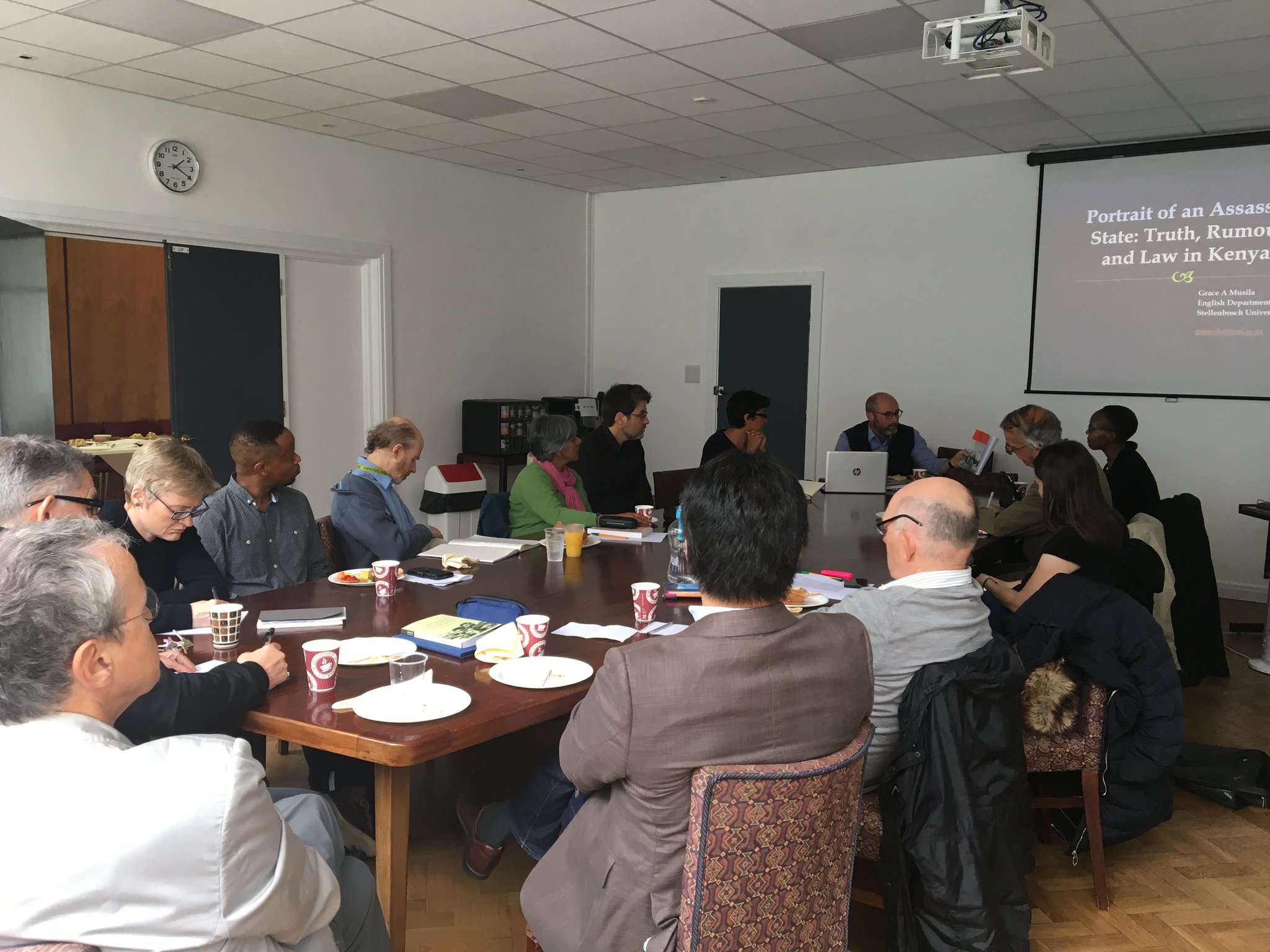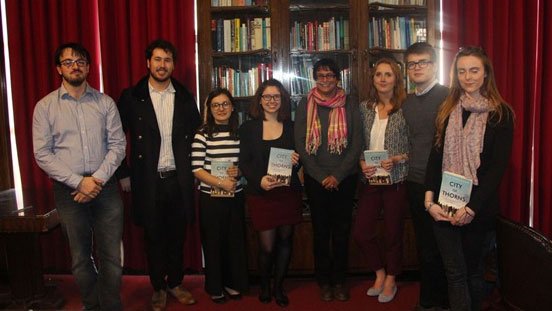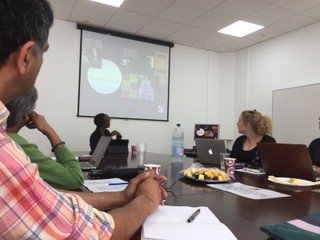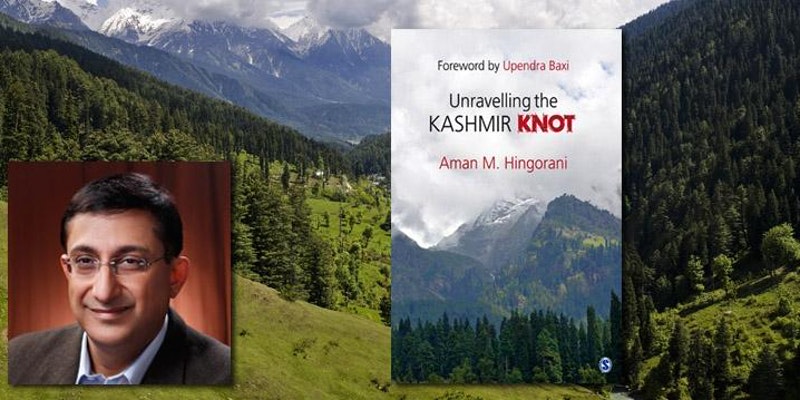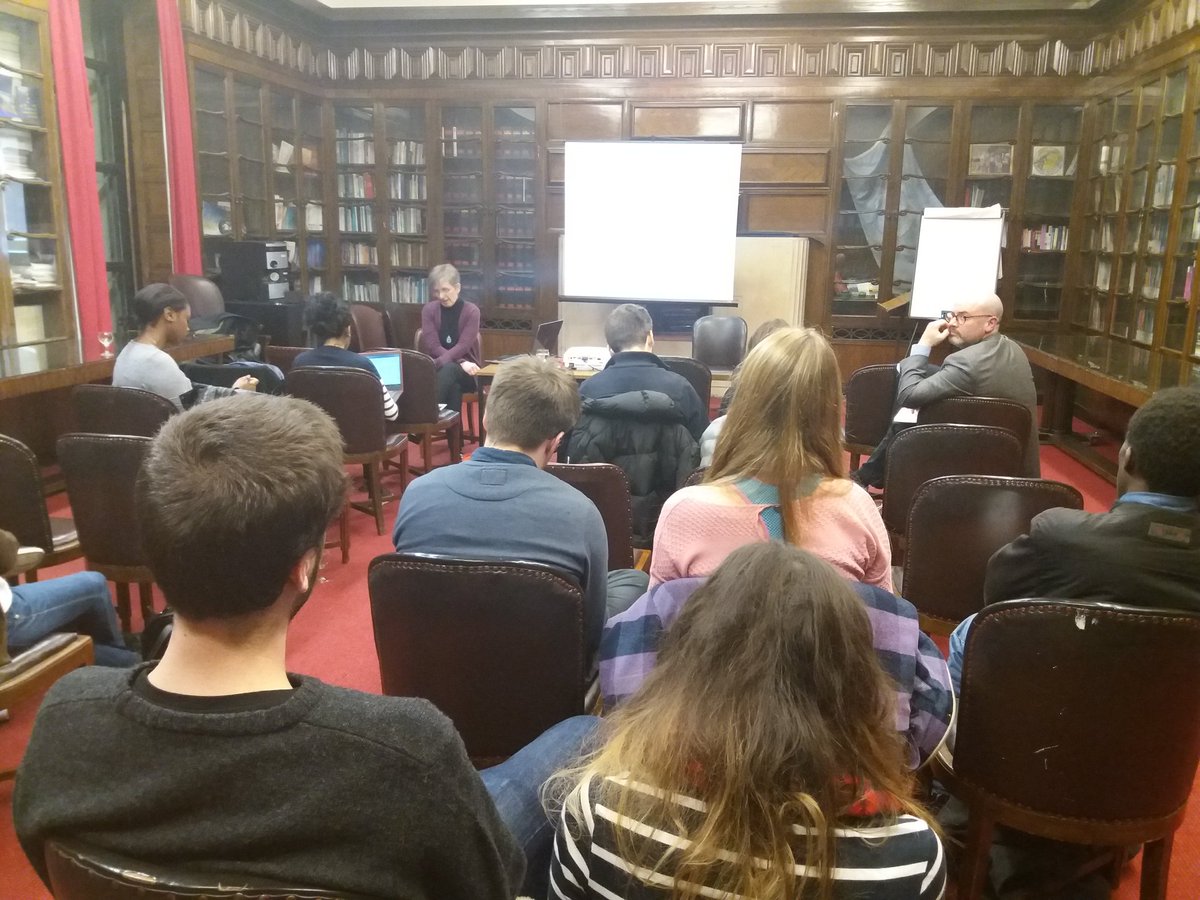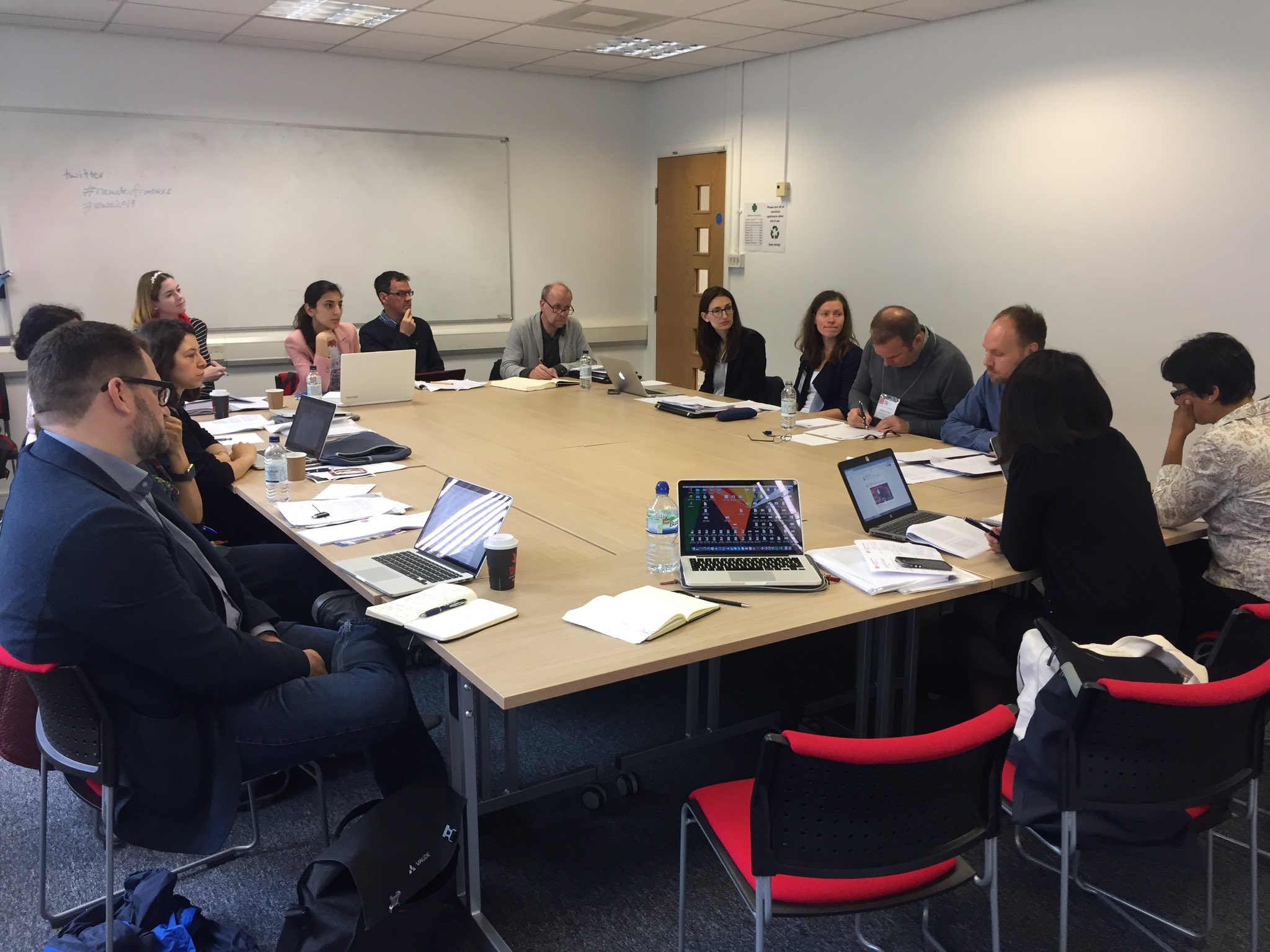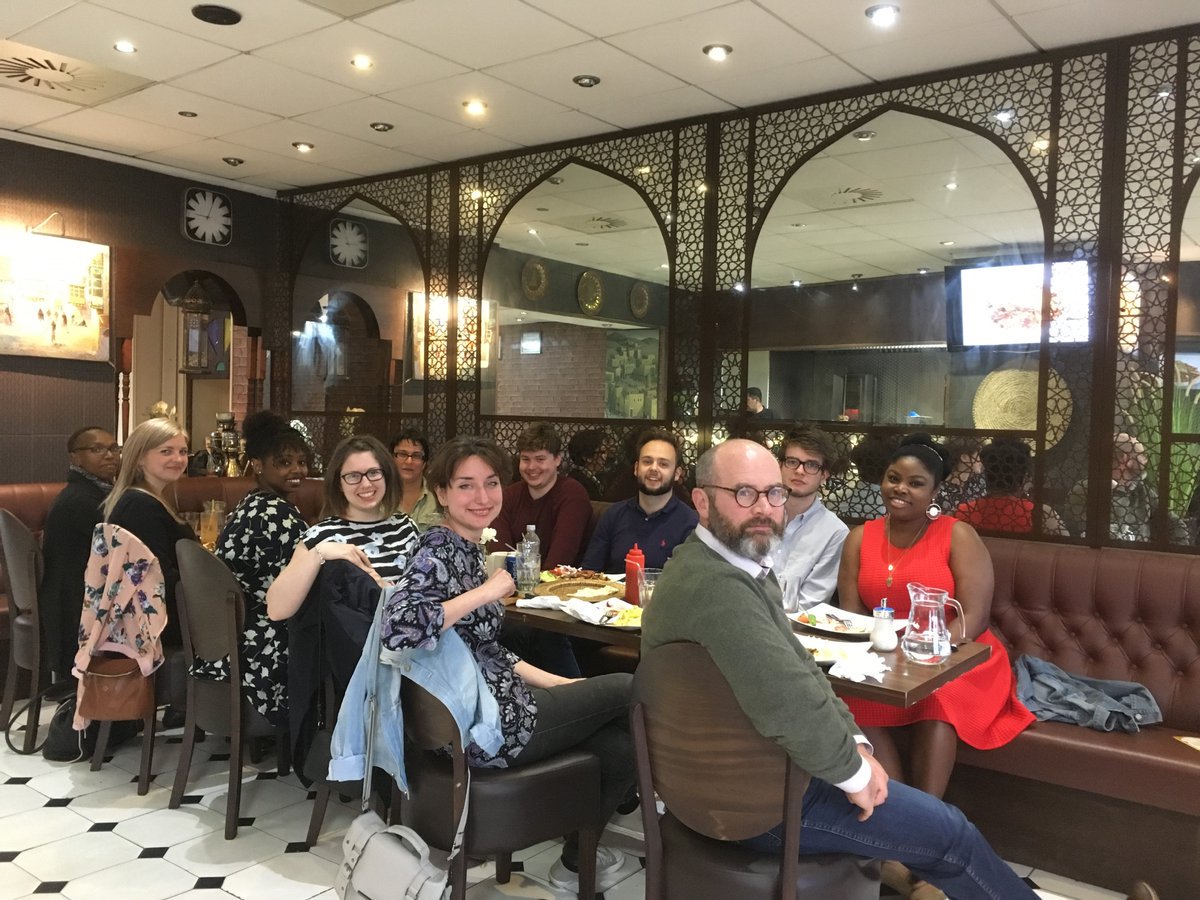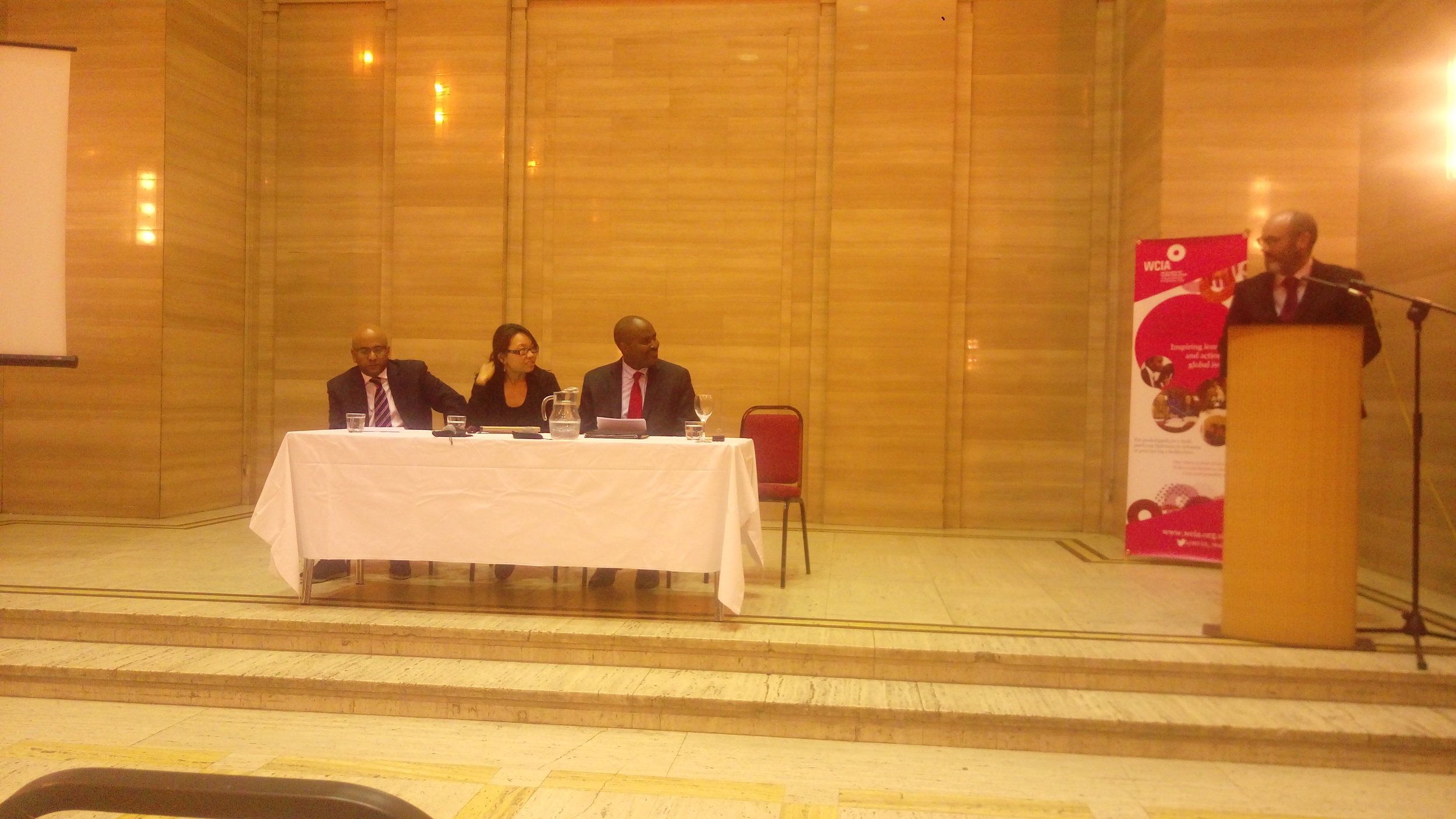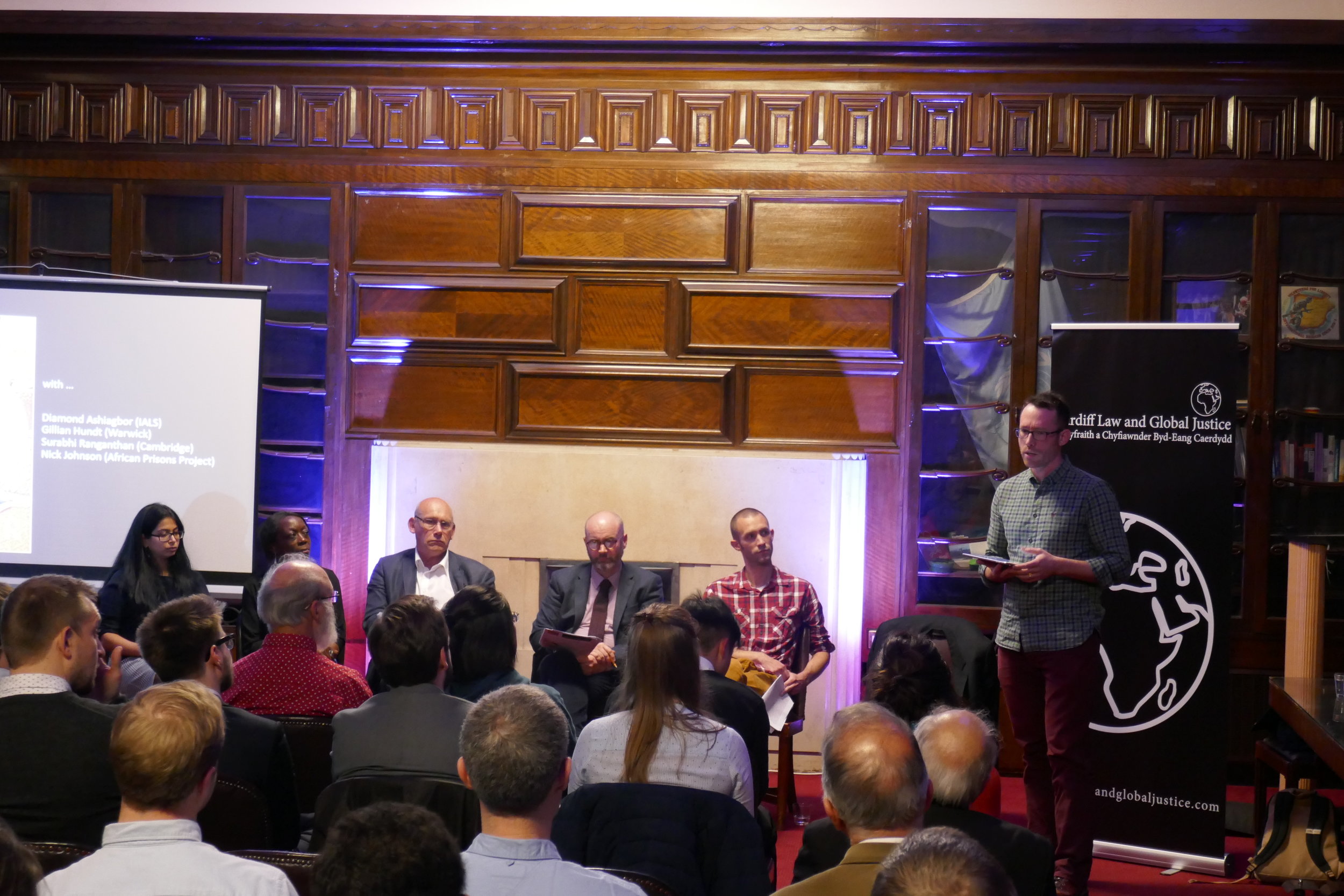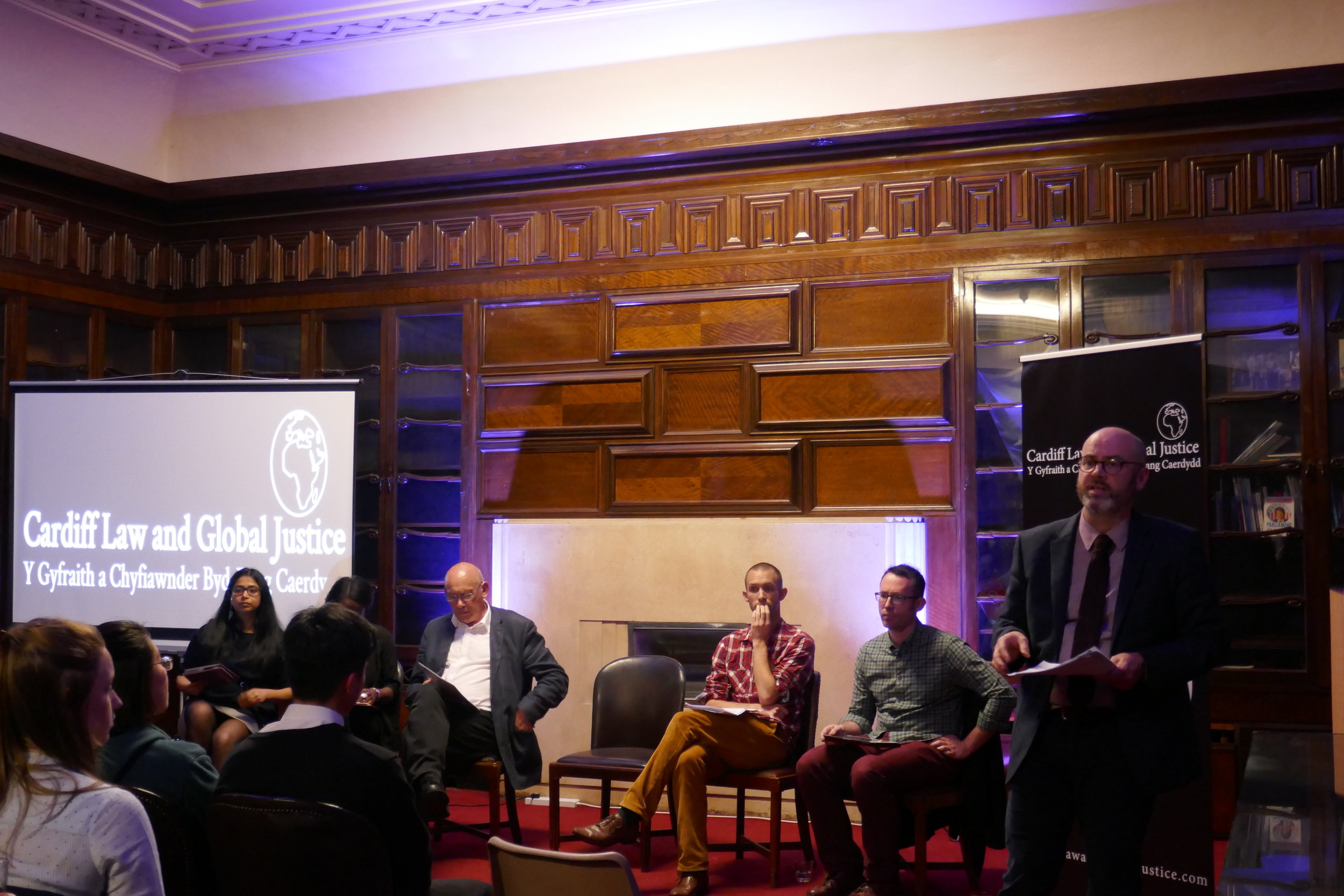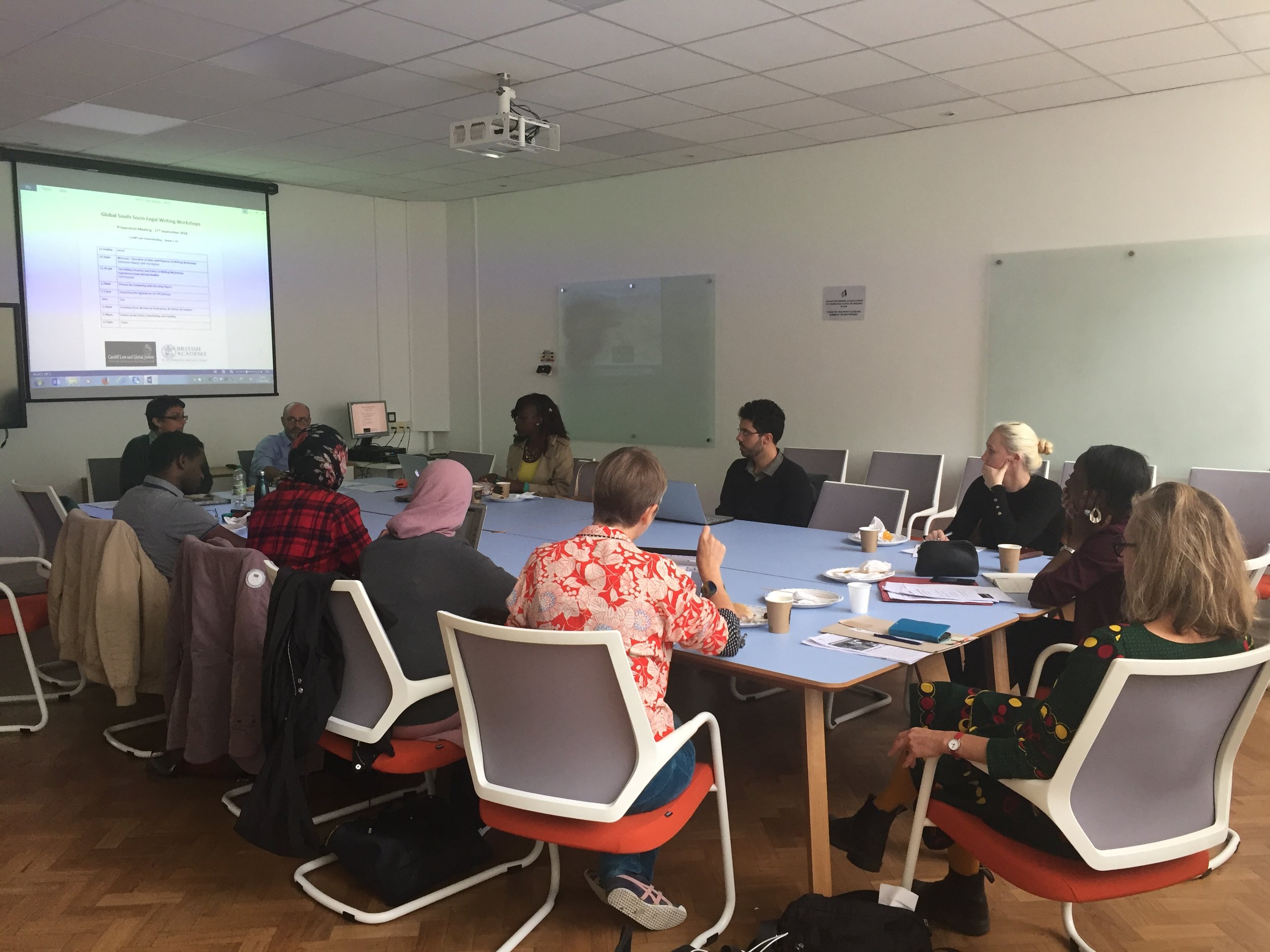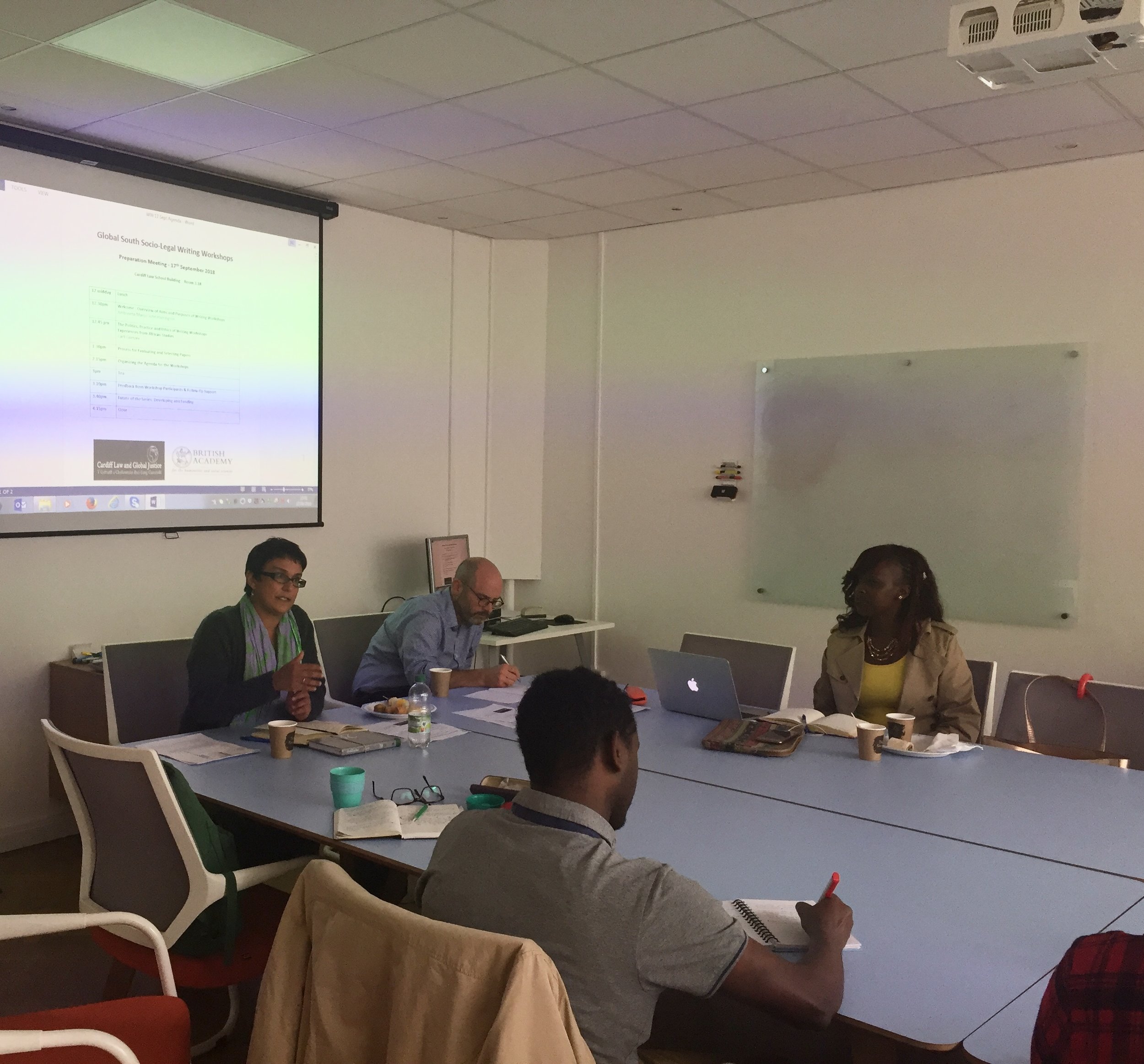DEVELOPMENT AID AND ROAD BUILDING - KENYA. 2015-16
The first year of the Cardiff Law and Global Justice Pro-Bono programme was a pilot scheme, with six students working to assist DPG lawyers, both in Bristol and London, and their clients Amnesty International and Amnesty Kenya on the ‘Deep Sea’ or ‘missing link road’ case in Nairobi, Kenya.
Funding from the UK’s Department for International Development (DfID) and equivalent agencies in other countries had been transferred to the European Development Fund. This was used to provide support to various infrastructure projects. One of these projects was a link road to be built in the Kenyan capital Nairobi. The route of this road was through the ‘Deep Sea’ informal settlement (slum), as such the residents were dealing with the ongoing evictions and the threat of eviction.
Nairobi, is home to an estimated 3.1 million people. Approximately half of them live in slums or informal settlements. Due to lack of adequate planning, many of these settlements occupy land designated for non-residential purposes - such as roads or railway lines, or are in locations where the residents do not have any recognised right to live. Residents of Nairobi’s slums or informal settlements often lack security of tenure which makes them incredibly vulnerable to forced evictions
One of the reasons why it’s so easy to carry the evictions is that in slums land title is often obscure, weekly rent is paid but you don’t know who actually owns the land. Often job of lawyers trying to oppose evictions to find out who actually owns land and titles, this is easier said than done in Nairobi due to how messy the land registry is.
Students at Cardiff University worked to oppose the evictions clarifying the accountability gap (for example the residents of Deep Sea have no direct influence in the UK). They looked at how UK funding for the project could be ‘unbundled’ and traced back to its source. Furthermore, students looked at potential legal and non-legal methods of accountability, such as judicial review, parliamentary questions and freedom of information requests to apply pressure to DfID.



